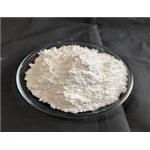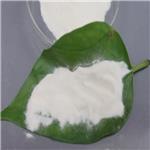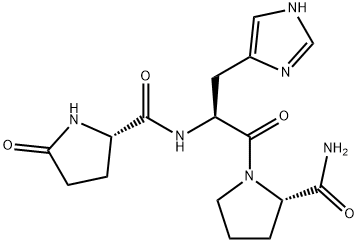What is Thyrotropin-releasing hormone
Sep 6,2023
description
Thyrotropin-releasing hormone (TRH), also known as thyrotropin-releasing factor, is a releasing hormone secreted by the hypothalamus which constitutes an essential part of the hypothalamic–pituitary–thyroid axis in vertebrates. Hyrotropin-releasing hormone is one of the smallest hormones in the body, consisting of a miniature chain of just three amino acid building blocks. In the late 60s of the 20th century, it was first purified and synthesized from the hypothalamus tissue of sheep and pigs.
Function
The main effect of TRH is to stimulate the release of thyrotropin (also known as thyroid stimulating hormone) from the pituitary gland. TRH is the brains first messenger signal to control thyroid hormone secretion. If the hypothalamus detects that there is not enough thyroid hormone available to the brain, TRH will be released into the bloodstream supplies the pituitary gland. This is followed by the release of thyroid-stimulating hormone, which stimulates the thyroid gland to produce more thyroid hormone.
For humans, TRH production is slightly age-dependent, at lower levels in old age (65-80 years), when the expression of its receptors is also reduced. TRH is also expressed in hair follicles and induces hair shaft elongation, hair growth, and prevention of keratinocyte apoptosis. TRH is a tripeptide capable of rapid degradation with a half-life of 4-5 minutes. TRH may generate His-Pro dipeptides through different metabolic pathways, which are then cleaved to His and Pro by proline dipeptidase (PDP).
Application
In terms of endocrine effects, treatment with TRH in central hypothyroidism was able to increase receptor binding and bioreactivity of TSH isolated from these patients. TRH is able to activate the brain and sympathetic nerves, improve spinal function, have antidepressant activity, and inhibit gastric acid secretion. After receiving TRH, 42% of the studies demonstrated significant effects in depressed patients. Prorelin is mainly used clinically to assist in the diagnosis of Graves disease, differential diagnosis of hypothyroid lesions, etc
TRH is a rapidly degraded peptide with multiple targets, limiting its suitability as a biomarker and drug candidate. Some drugs with a similar structure to TRH have a stronger efficacy. The analog tatirelin is used in spinocerebellar degenerative disease (SCD), is active at 100-fold lower concentration and with an eight-fold increased duration than natural TRH. Monteirelin is effective in the treatment of seizures, recovery from anesthesia, and loss of consciousness, acts at a 10-folds lower dose and for a longer time than natural TRH.
References
[1] Garbutt J, et al. Dose-response studies with protirelin. Archives of General Psychiatry, 1994; 9: 285–290.
[2] Fröhlich E, et al. The forgotten effects of thyrotropin-releasing hormone: metabolic functions and medical applications. Frontiers in Neuroendocrinology, 2019; 52: 29-43.
[3] Li X, et al. Characterization of a novel thyrotropin-releasing hormone receptor, TRHR3, in chickens. Poultry Science, 2019; 99: 1643-1654.
[4] Sánchez-JaramilloE, et al. Origin of thyrotropin-releasing hormone neurons that innervate the tuberomammillary nuclei. Brain Structure Function, 2022; 227: 2329–2347.
- Related articles
- Related Qustion
- Thyrotropin-releasing hormone: Clinical Studies and Safety Jan 16, 2025
Thyrotropin-releasing hormone shows promise in treating severe epilepsies, with significant seizure reduction and favorable safety profile. Further trials are needed for optimization.
D-Serine binds to the glycine site of the NMDA receptor, which is an amino acid that plays a role in cognitive enhancement, treatment of schizophrenia and depressive disorder.....
Sep 5,2023APITrenbolone is a synthetic anabolic-androgenic steroid.It can be used to gain a lot of lean muscle and strength, but it also has many side effects....
Sep 6,2023APIThyrotropin-releasing hormone
24305-27-9You may like
Thyrotropin-releasing hormone manufacturers
- Protirelin
-

- $0.00 / 1g
- 2025-11-19
- CAS:24305-27-9
- Min. Order: 1g
- Purity: 98%min
- Supply Ability: 1000g
- Thyrotropin-releasing hormone
-

- $1.00 / 1g
- 2025-11-19
- CAS:24305-27-9
- Min. Order: 1g
- Purity: 99%
- Supply Ability: 100kg
- Thyrotropin-releasing hormone
-

- $999.00/ kg
- 2025-11-18
- CAS:24305-27-9
- Min. Order: 1kg
- Purity: 99%
- Supply Ability: 5000





